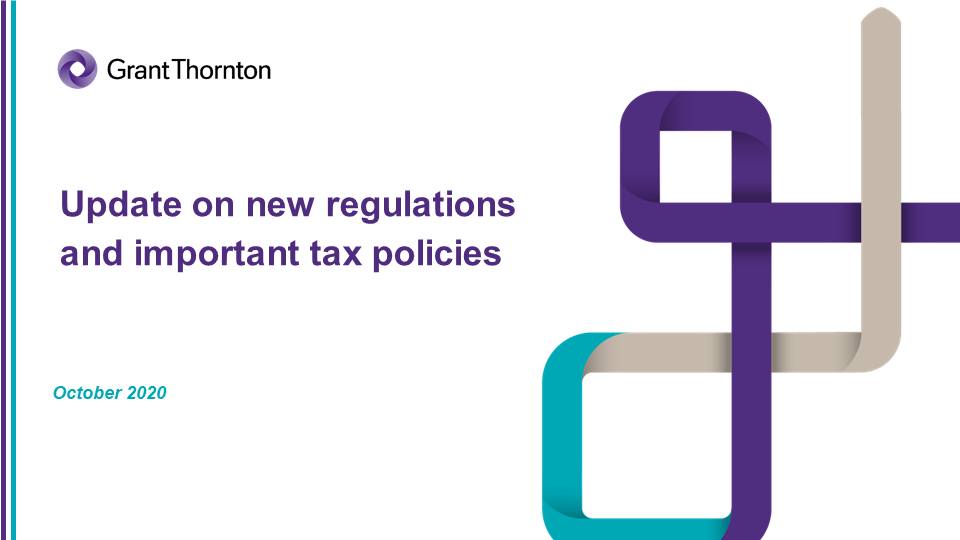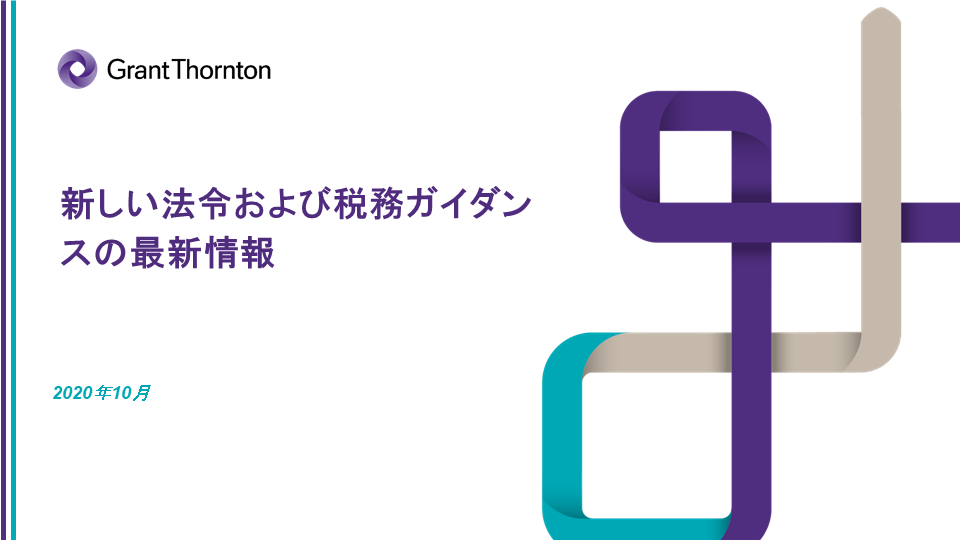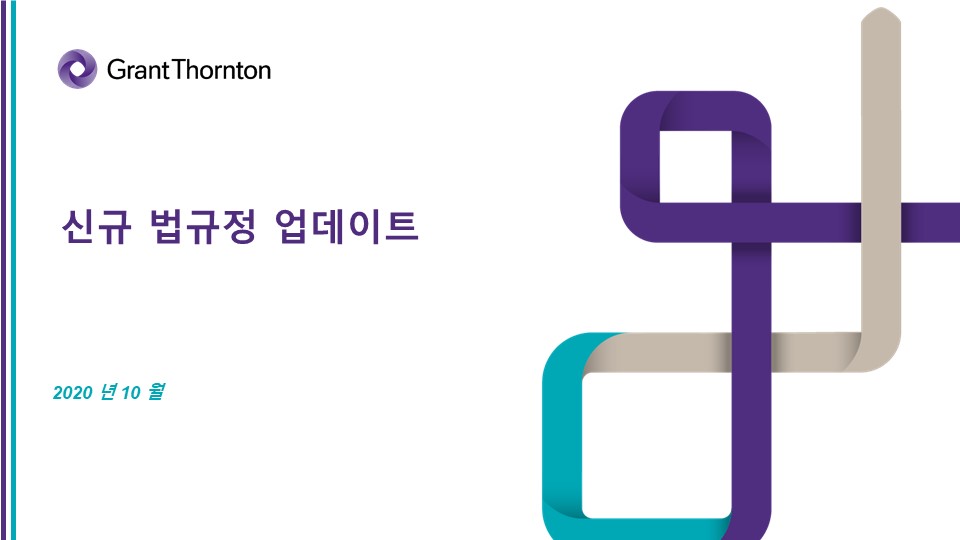-
International Financial Reporting Advisory Services
IFRS reporting advisory serivces of Grant Thornton are carried out by our dedicated team with expertise in IFRS implementation.
-
Audit Services
• Statutory audit • Review of financial statements and financial information • Agreed-upon procedures • FRAS services • Compilation of financial information • Reporting accountant • Cross-border audit • US GAAP audit
-
Audit Quality
We have various methods of monitoring our system of quality control and engagement quality, including real-time involvement of coaches and national office personnel on select audit engagements, reviews of issuer audit engagements prior to archiving by someone outside of the engagement team, and internal inspections of assurance engagements and the system of quality control.
-
Audit Approach
Audit Approach
-
Licensing services
Licensing services
-
International tax planning
Our extensive international network provides us with significant resources to meet all your expansion goals. We strive to develop commercially focused and tailored tax strategies to minimise tax exposures and maximise business efficiency.
-
Expatriate tax planning
We have a broad knowledge base and skills to assist you keep your personal income taxes to a legitimate and reasonable level, while remaining compliant with legislation. We can develop a personalised package for each key employee to take maximum advantage of the exemptions and incentives available.
-
Tax advisory
We will review the proposed business model and transactions and advise on tax implications and recommendations to optimize the tax opportunities under the local regulations and treaties which Vietnam entered into. Furthermore, we coordinate with our GT global tax team to provide a comprehensive tax advisory for the countries involved in the business model and transactions.
-
Tax compliance services
This service is designed to assist enterprises to cope with the statutory tax declaration requirements in line with the Vietnamese tax laws as well as the frequent changes and updates in tax laws.
-
Tax health check
Our Tax Health Check involves a high-level review of specific tax areas to highlight the key issues that need to be rectified in order to reduce tax risks. Through our extensive experience, we have identified key risk areas in which many enterprises are not fully compliant or often overlook potential tax planning opportunities. Our tax health check service represents a cost-effective method to proactively manage risks and reduce potential issues arising as a result of a tax inspection.
-
Transfer Pricing
Transfer pricing is a pervasive tax issue among multinational companies. In Vietnam, the tax authorities require special documentation to report related party transactions. Compliance with transfer pricing regulations is an important aspect of doing business effectively in Vietnam as failure to do so may result in significant penalties.
-
Tax due diligence
We conduct tax due diligence reviews of target companies to analyse their tax exposure and position in relation to acquisitions, mergers or consolidations. We are able to integrate this service with our Advisory Services department in order to offer a comprehensive, holistic due diligence review.
-
Customs and international trade
Our experienced professionals can help you manage customs issues more effectively through valuation planning and making use of available free trade agreements. We also assist Clients in optimising their customs procedures by making use of potential duty exemptions and efficient import-export structures. Risk mitigation activities include customs audit defense and compliance reviews.
-
M&A Transaction
We advise numerous foreign investors on efficient tax structures for their investments. Our experience allows you to consider all the options and set up a corporate structure that meets both operational and tax efficiency requirements. In short, the structure that is best for you.
-
Industrial Zones – Picking A Location For Your Business
Grant Thornton Vietnam’s one-stop services are designed to provide comprehensive support to both new and current investors who are planning to expand or restructure their business in Vietnam. Our professionals have established strong working relationships with landlords, property developers and authorities at various localities. With extensive experiences in liaison with the relevant agencies, we offer assistance including negotiation on land rental rates and efficient management of licensing process. Our customized and flexible solutions can bring benefits of cost efficient location, accelerate licensing process, and optimize tax opportunities while remaining in compliance with legislation.
-
Tax Audit Support
Tax audit support services provide comprehensive assistance to your business in Vietnam. Recent tax practices have shown the general tendency of launching routine tax audit on yearly basis. Tax authorities have been effectively using more sophisticated methods to identify target entities from across different industry sectors.
-
Business Risk Services
Business Risk Services
-
Transaction Advisory Services
Transaction Advisory Services
-
Valuation
Valuation
-
Business consulting services
Finance Management Advisory
-
Accounting services
Accounting services
-
Taxes compliance within outsourcing
Taxes compliance within outsourcing
-
Payroll, personal income tax and labor compliance
Payroll, personal income tax and labor compliance
-
Secondments/Loan staff services
Secondments/Loan staff services
-
Compilation of the financial and non-financial information
Compilation of the financial and non-financial information
-
Accounting systems review and improvement
Accounting systems review and improvement
-
Initial setting-up for accounting and taxes systems
Initial setting-up for accounting and taxes systems
-
Management accounting and analysis
Management accounting and analysis
-
Comprehensive ERP system solution
ERP software is a tool for business operations, production management, order processing and inventory in the business process. Today, ERP software for small and medium businesses has been greatly improved to help businesses manage their business better. The article below will answer all relevant information about what ERP software is and offer the most suitable ERP solution for businesses. Let's follow along!
-
Analyze Business Administration data
We believe in the value that data can bring to the success and development of every business. Our team helps design data architecture supported by tools, to support business governance and provide useful information to management.
-
Financial reporting compliance solution package
Putting financial issues at the heart, this service helps ensure that financial reports for customers comply with both the requirements of Vietnamese accounting regulations and standards (VAS) as well as reporting standards. international finance (IFRS).
-
Third-party ERP extensions
ERP is a long-term solution that requires long-term travel, not short-term. We understand that many businesses cannot deploy the entire ERP system at once due to many different reasons, instead businesses can deploy each part. Over time, these solutions can be expanded to accommodate improved business processes or can even link completely new processes across different departments.
-
Localize, deploy and rebuild the project
Quite a few ERP projects need to be implemented according to current Vietnamese requirements and regulations, but still comply with common international business requirements. These projects need some improvements and adjustments in the right direction.
-
Consulting on technology solutions
We support the selection and implementation of the most suitable solutions, ensuring business efficiency and performance. We will work closely with customers to plan, evaluate and implement the right technology investment strategies and solutions to meet the development needs of businesses.

-
Offshore company establishment service
Using the offshore company model will facilitate the owner in the process of transaction and expand overseas markets, take advantage of the tax policy with many incentives and protect the value of the family enterprise's assets.
-
Private Trust Advisory
The development of the economy with many modern financial instruments has brought many advantages and opportunities for the enterprises, but there are still certain potential risks in any type of business. So how to protect your asset value with an appropriate company structure while stay compliance with relevant regulations?
-
Our values
We have six CLEARR values that underpin our culture and are embedded in everything we do.
-
Learning & development
At Grant Thornton we believe learning and development opportunities help to unlock your potential for growth, allowing you to be at your best every day. And when you are at your best, we are the best at serving our clients
-
Global talent mobility
One of the biggest attractions of a career with Grant Thornton is the opportunity to work on cross-border projects all over the world.
-
Diversity
Diversity helps us meet the demands of a changing world. We value the fact that our people come from all walks of life and that this diversity of experience and perspective makes our organisation stronger as a result.
-
Contact us
Contact us
-
Available positions
Experienced hires
-
Available positions
Available positions
Vietnam is drastically implementing to issue and re-enforcing the policies, including tax reduction, tax extension policies, to support the business community overcoming difficulties as well as enhance the domestic business environment to promote investment attraction.
In this month Tax Newsletter, Grant Thornton Vietnam would like to update important policies which are recently issued.
1. Resolution No.124/NQ-CP issued by Government on Government’s action plan on implementation of national industries development plan
On 03 September 2020, the Government had issued Resolution No. 124/NQ-CP on Government’s action plan on implementation of Resolution No.23-NQ/TW dated 22 March 2018 of Political Bureau on implementation of national industries development plan by 2030, with a vision to 2045. Whereby:
- The Government sets specific target by 2030, the industrial ratio in GDP will reach over 40%; the proportion of processing and manufacturing industries in GDP reaches about 30%, of which manufacturing industries reaches over 20%. The proportion of high-tech industrial product value in the processing and manufacturing industries reaches at least 45%. The growth rate of value added industrial is on average over 8.5%/year, of which the processing and manufacturing industries reaches over 10%/year on average.
- In order to achieve the target, the Government assigns the tasks to authorities such as the Ministry of Planning and Investment, the Ministry of Finance, etc. to formulate investment incentive policies with a focus by sector or field, associated with business contributions. Accordingly, incentive policies are issued according to the principle that the level and duration of incentives of FDI projects will depend on the level of domestic value added creation and the accompanying conditions. At the same time, to research, amend and supplement tax incentive policies for industries with priority for development.
- Besides, in the period of 2021-2025, the Ministry of Finance and relevant ministries are expected to amend and supplement some important laws such as the Law on Corporate Income Tax, the Law on Export Tax and Import Tax, Law on Value Added Tax, as well as building new Property Tax Law, etc.
The Resolution took effect from the signed date.
2. Decree 114/2020/ND-CP regulating the implementation of the Resolution No. 116/2020/QH14 of the National Assembly on 30% reduction of CIT payable of the year 2020
On 25 September 2020, the Government issued Decree 114/2020/ND-CP regulating the implementation of Resolution No. 116/2020/QH14 of the National Assembly on reduction of corporate income tax (“CIT”) payable of the year 2020. Some key points of the Decree 114 are as below:
- Reduce 30% in CIT payable of the year 2020 for the enterprise having total revenue in 2020 not exceeding VND200 billion.
- Total revenue in 2020 as a basis for determining the eligible enterprises for tax reduction is the total revenue of the enterprise for CIT period of 2020 of the enterprise including all sales, processing and supply service costs including price subsidies, surcharges and supplements to which enterprises are entitled in accordance with the Law on Corporate Income Tax and its guiding documents, including other incomes such as income from capital transfer, transfer of real estate or transfer of investment project, etc.
- If the enterprise applies fiscal year different from the calendar year, the CIT calculation period shall be determined according to the fiscal year in accordance with the Law on Corporate Income Tax and its guiding documents. For this content, the Company should pay attention to follow-up with further guidance from the Ministry of Finance/General Department of Taxation to determine the appropriate tax reduction amount in the year 2020 for each specific case.
- If the enterprise has expected the total revenue in the year 2020 not exceeding VND200 billion, the enterprise shall determine quarterly temporary payments which equal to 70% of CIT payable amount of the quarter.
3. Decree No.109/2020/ND-CP on Extension Special Consumption Tax payment duration for domestically manufactured automobiles
On 15 September 2020, the Government had issued Decree No.109/2020/ND-CP on Extension Special Consumption Tax (SCT) payment duration for domestically manufactured automobiles, specifically:
- Extension tax payment deadline for SCT payable incurs in the tax period of March, April, May, June, July, August, September and October 2020 for domestically manufactured or assembled automobiles.
- Extension SCT payable payment incurs in March 2020 to 20 September 2020
- Extension SCT payable payment incurs in April 2020 to 20 October 2020
- Extension SCT payable payment incurs in May 2020 to 20 November 2020
- Extension SCT payable payment incurs in June to October 2020 to 20 December 2020
- Tax payer eligible to the extension is required to declare as prescribed but does not needs to pay the SCT payable incurs yet. Tax payer will send a Letter requesting for deadline extension of SCT payment at the same time with Tax return Submission or no later than 30 September 2020.
The Circular took effect from 15 September 2020.
4. VAT for processing service provided by EPEs to domestic enterprises
Regarding the provision of processing services of export processing enterprise (“EPE”) to domestic firms, there have recently been some guidelines issued by the General Department of Taxation and local tax authorities on this issue, specifically as follows:
Office Letter No. 3231/TCT-CS issued by General Department of Taxation on 10 August 2020
If the processing activities of the EPE are not related to the trading of goods and activities directly related to the trading of goods in Vietnam, the domestic enterprise shall carry out customs procedures as prescribed and is considered as the case of ordering goods processing overseas. The EPE uses the sale invoice when receiving the processing fee, clearly stating "For organizations and individuals in the non-tariff zone" according to current regulations
Office Letters No. 81739/CT-TTHT and 81740/CT-TTHT issued by Hanoi Tax Department
In case the company is an EPE signs a contract to process for a domestic enterprise, the company must be licensed to do processing activities with a domestic enterprise. These activities are subject to VAT. The company must separately account and register with the tax office to declare and pay VAT separately. These instructions do not clarify whether custom declaration is required or not for these cases.
As the regulations on this issue are still not really clear, in order to effectively manage the tax risks that may arise, we recommend that if you have any issue during implementation, please contact Grant Thornton for further advice.
5. Some Office Letters on Guidance on new standard for dependent registration and family deduction.
On 12 August 2020, the Bac Ninh Tax Department issued Official Letter No. 2455/CT-TTHT on the new family deduction of the PIT Law under Resolution No. 954/2020/UBTVQH14, specifically:
- In case the Company performs PIT finalization on behalf of the taxpayer to terminate the contract and left in July 2020 and the taxpayer has a cross year tax finalization period from 2019 to 2020, the family relief rate from January 2020 onwards is determined according to the provisions of Resolution No. 954/2020/UBTVQH14 which is VND11,000,000/month for the individual and VND4,400,000/month for each dependent.
- If the tax declaration support system has not yet updated for PIT finalization return according to the new family relief according to the provisions of Resolution No. 954/2020/UBTVQH14, the company submits the paper finalization return to the managing tax office. We know that a number of other local tax authorities also agree with the enterprises to submit paper finalization returns to the tax authority during the period when the tax declaration software has not been updated.
Also related to the issue of the foreigner's annual PIT finalization, Dong Nai Tax Department has a guidance Office Letter No. 7950/CT-TTHT dated 24 August 2020, whereby:
- For the first tax year from August 2019 to July 2020, the deduction rate will follow the old regulations in Circular 111.
- For the second tax year from January 2020 to December 2020: the family deduction shall follow the new regulations in Resolution 954/2020/UBTVQH14.
However, because these are the instructions of the local tax departments, depending on the location of the Company, you should discuss with the managing tax office directly before implementing to minimize risks for tax declaration and payment.
Please contact the Grant Thornton consultants in case you need more professional advice regarding to the application of tax, accounting, transfer pricing, labor policies, investment and customs as well as other legal policy problems in the business process of enterprises.













